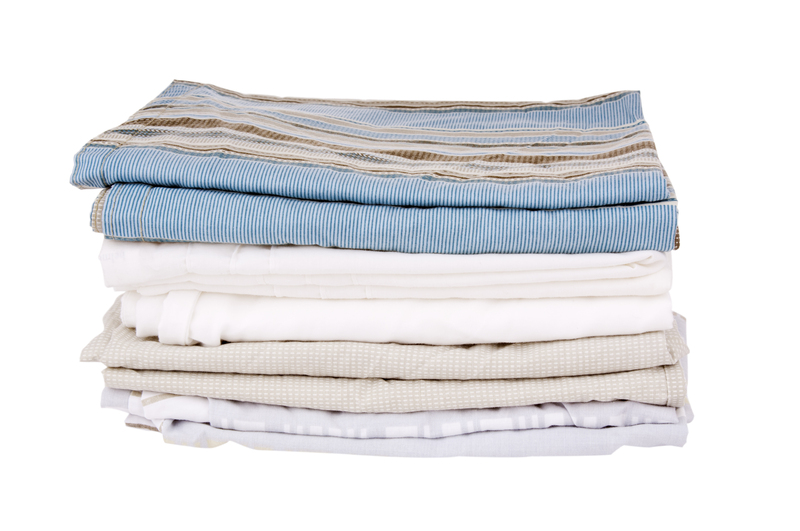Everything You Need to Know About Recycling Metal Cookware
Recycling metal cookware is a crucial part of sustainable living. Old pots, pans, baking trays, and even metal utensils can be given a new life through proper recycling channels. In this comprehensive guide, we'll discuss how to recycle metal cookware, the environmental impact, and the best ways to extend the life cycle of your kitchen items. Whether you're clearing out clutter or upgrading your kitchen, read on for insightful information on the recycling of metal cookware.

Why Should You Recycle Metal Cookware?
Each year, millions of tons of cookware end up in landfills. This contributes to environmental degradation, unnecessary resource extraction, and increased greenhouse gas emissions. By recycling your metal kitchenware, you are:
- Reducing landfill waste
- Conserving natural resources
- Decreasing energy consumption
- Encouraging sustainable practices
Metals like aluminum, stainless steel, and cast iron can be melted down and reused in new products. This means that every pan or pot you recycle keeps valuable materials out of the landfill and in circulation.
Types of Metal Cookware That Can Be Recycled
Common Recyclable Metals in Cookware
- Aluminum cookware—common in lightweight pans and roasting trays
- Stainless steel pots and pans
- Copper-bottom cookware
- Cast iron skillets and Dutch ovens
- Metal baking sheets and muffin tins
Generally, if your cookware is made of metal or has a dominant metal component, there's a good chance it can be recycled effectively. Scratched, burnt, or even slightly warped metal cookware is still valuable to recyclers.
Cookware That Cannot Be Recycled Easily
Not all cookware is accepted at every recycling facility. For example, non-stick pans, such as those with Teflon coatings, need special consideration. Many recycling centers will not accept them unless the coating is removed. Cookware with plastic handles, glass lids, or mixed materials may also need disassembly or special disposal.
- Non-stick pans with intact coating (unless facility accepts them)
- Cookware with significant plastic or wooden parts
- Glass or ceramic bakeware (not metal)
Always check local recycling guidelines to determine what is accepted in your area.
How to Prepare Metal Cookware for Recycling
Proper preparation ensures that your items are accepted and processed efficiently. Here's what you should do:
- Clean the cookware: Remove any food residue or grease. A rinse with soap and water suffices, as recyclers don't expect sparkling clean items but need them free of significant contamination.
- Disassemble if needed: Separate plastic, wooden, or rubber handles. Unscrew or detach parts that are not metal. These parts may have alternate disposal or recycling options.
- Remove non-steel coatings: If possible, strip non-stick or enamel coatings. If unable, label the glaze and check if your center can still accept the item.
By following these simple steps, you make the work of metal recyclers much easier and maximize the chances your cookware will be recycled rather than landfilled.
Where to Recycle Metal Cookware
Local Recycling Centers
Your local recycling facility or waste management center is usually the first stop. Many accept metal cookware in the scrap metal bin, often located at drop-off areas or transfer stations. Use resources such as Earth911 or your municipality website to find nearby locations.
Scrap Metal Yards
A scrap yard is a great place to recycle metal pans and pots, especially if they are larger or heavier. Scrap yards pay for metal by weight, so you may even earn a small return for your old cookware.
Retail Take-Back Programs
Some retailers and cookware manufacturers now offer recycling take-back programs. Brands like GreenPan, Calphalon, and All-Clad occasionally run promotions or offer in-store recycling where old pots and pans can be turned in when you buy new ones.
Donation as an Alternative to Recycling
If your cookware is still usable, consider giving it a second life before recycling. Many thrift stores, shelters, and community kitchens accept gently used kitchen equipment. Donation extends the useful life and reduces the immediate demand for recycling, which can sometimes be energy-intensive.
- Charity shops
- Food banks and community kitchens
- Online giving networks
Environmental Impact of Recycling Metal Cookware
The ecological case for recycling your old cookware is compelling. Here's why:
- Energy savings: Recycling metals uses up to 95% less energy compared to mining and processing new material. For example, recycling an aluminum pan saves enough energy to power a smartphone for several days.
- Reduced mining waste: Avoiding new metal extraction reduces landscape disruption, water pollution, and toxic byproducts from mines.
- Lower carbon emissions: The energy savings translate directly to fewer CO2 emissions, helping combat climate change.
When cookware is left to rot in landfills, it not only takes centuries to break down, but it can also leach trace metals into the ground. Recycled metals stay within the economy repeatedly, supporting the principles of the circular economy.
Reusing Old Cookware: Creative Ideas Beyond Recycling
If recycling isn't possible, consider some innovative ways to give your old cookware a new purpose at home or in the garden:
- Planters: Old skillets and pots make quirky, durable plant containers.
- Birdbaths or feeders: Repurpose large roasting pans outside for your feathered friends.
- Wall art or decor: Mount interesting-shaped pans or trays for rustic kitchen style.
- Organizers: Use muffin tins for drawer organizers or as creative storage solutions.
Upcycling not only keeps items out of the landfill but can spark creativity and add a personal touch to your home or garden.
Common Questions About Recycling Metal Cookware
Do all recycling centers accept metal cookware?
No. Some recycling centers may have restrictions, especially regarding coated or multi-material cookware. Always check local policies before dropping off your items.
Can non-stick pans be recycled?
It depends. Non-stick cookware made from Teflon or similar materials can sometimes be recycled if the facility has the means to separate the non-stick coating from the metal underneath. Otherwise, search for specialized recycling programs or contact the manufacturer for guidance.
Is it safe to donate old cookware?
Yes, if the cookware is in good, usable condition without major scratches, chips, or missing parts. Check with the donation center for specific requirements.
What about cookware with plastic handles?
Remove the handles if possible. If they are fused, contact your local center for instructions—some accept mixed materials, but many prefer bare metal only.
Are there ways to make my cookware last longer?
Absolutely! Regular cleaning, avoiding metal utensils on non-stick surfaces, and seasoning cast iron can extend the life of your cookware and reduce the need for frequent replacement.
Recycling Metal Cookware: Step-by-Step Checklist
- Assess whether your cookware can be donated, reused, or must be recycled.
- Clean thoroughly to remove grease and food.
- Disassemble any removable parts (plastic, wood, glass).
- Contact local recycling centers to confirm what is accepted.
- Deliver to the correct drop-off location or arrange for pickup.
- Consider upcycling if recycling is not available.

Key Tips for Responsible Cookware Disposal
- Never place metal cookware in curbside recycling bins unless explicitly allowed, as it can damage recycling equipment.
- Label materials clearly if they are mixed, to help recycling staff make quick decisions.
- Consult brand and retailer recycling programs for specialized disposal services, especially for non-stick products.
- Spread the word: Educate family and friends on the importance of recycling kitchen metals for environmental benefit.
Conclusion: Make Metal Cookware Recycling Part of Your Green Routine
Recycling your metal cookware is a responsible and rewarding choice for both your home and the environment. By understanding your options, preparing cookware properly, and utilizing community resources, you play a role in conserving resources and reducing pollution. The next time you upgrade your kitchen or clear out clutter, remember: that old pan might just be the start of something new—in someone else's kitchen, in a creative home project, or as recycled material in a brand-new product. Start recycling your metal cookware today and help build a more sustainable world—one pan at a time!